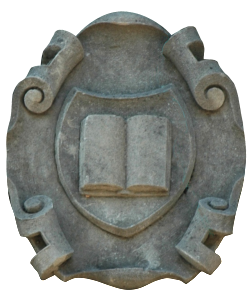
Lecture Listening Guides
by David Capes
Lecturer: Larry Hurtado
Title: A New and Mischievous Superstition; Early Christianity in the Roman World
Date: 09/10/2016
Prepared by Emma Abernathy
- What does Hurtado mean when he describes Christianity as one option among many? Where are gods to be found in the Roman world?
- How does Hurtado debunk the idea that the gods of Rome are somehow failing?
- How do we think about religion differently than the Romans?
- How were the gods worshiped?
- What are some of the new religious movements at the time of early Christianity?
- What does Hurtado mean when he calls Christianity a transethnic and trans-local movement?
- What are some of the charges leveled against Christians by non-believers?
- What features that made Christianity “distinctive” have become cultural commonplaces?
- What was expected of a good Roman when it came to the worship of the gods?
- How did early Christianity differ from the rest of the Greco-Roman world?
- Why are Christians referred to as atheists and anti-social? How are these related?
- How do early Christian distinctiveness reflect its Jewish matrix?
- How does Christianity establish the practice that one’s religious identity is distinguishable from your ethnic identity?
- What does Hurtado mean that early Christianity is “bookish”?
- When were the earliest compositions and collections of Christian books made? Who was the author?
- What does Justin Martyr say about the public reading of the Gospels?
- By the 3rd century how many Christian texts had been produced that we now have? What kinds of texts were they? How does this compare to other religions?
- What evidence do we have that Christians made copies of special texts?
- What are the three most frequently attested books from the earliest Christianity communities?
- How were these Christian texts circulated?
- What were the two most common book forms? Which did early Christians prefer?
- What percentage of books were rolls and codices in the 2nd century? 3rd century?
- What percentage of Christian texts of Scripture were codexes/codices?
- What does nomina sacra refer to?
- What unusual ethical standards did early Christians have?
- Why did Edwin Judge say it is misleading to call Christianity a religion in the Roman world?
- Why did Roman world consider Christianity a superstition?

